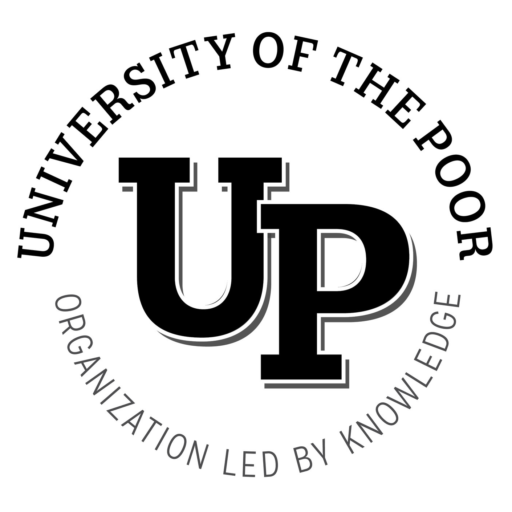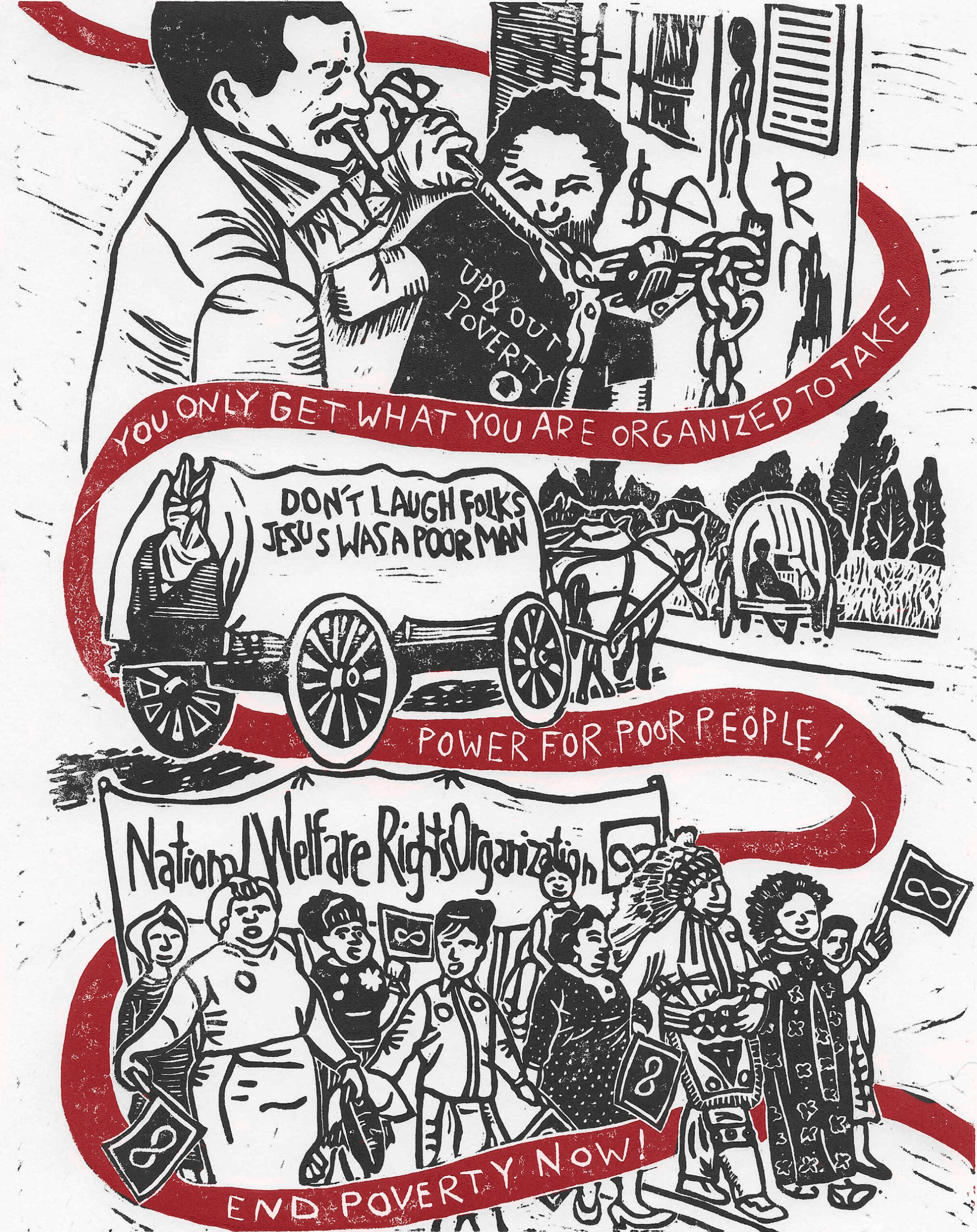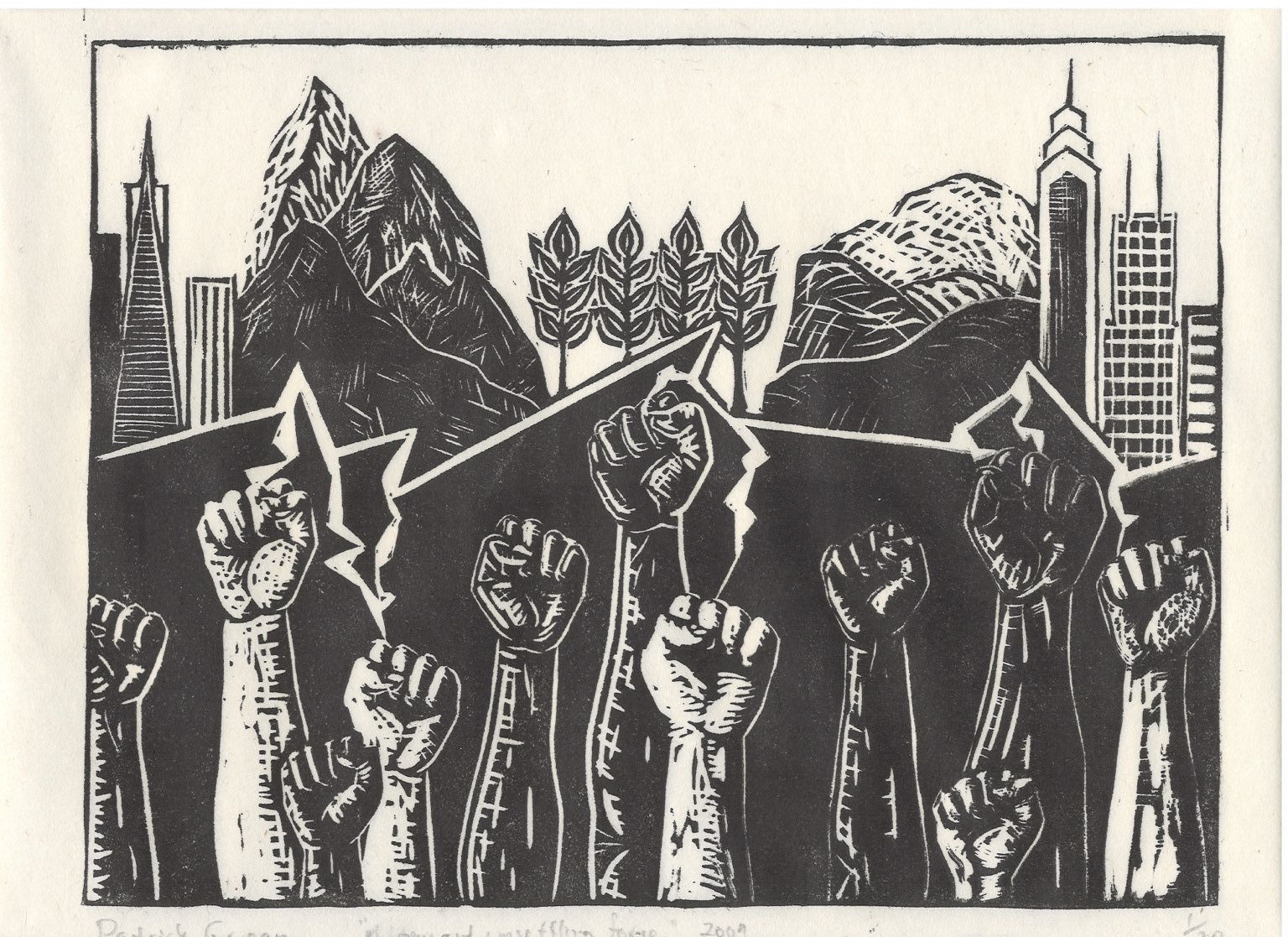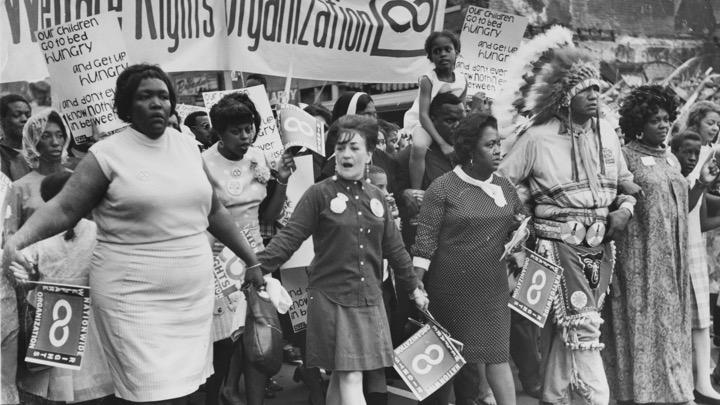The horrors of the last year were, as always, felt most deeply by poor and dispossessed people. In this country, the virus spread along the faultlines of our society, further revealing a system that puts profit over people at every turn, from healthcare to housing to the earth, water, and air that gives us all life. Poor and dispossessed people haven’t just suffered because this system deems their lives expendable. They have suffered, and continue to suffer, because they don’t have the unity, organization, and political power to make their needs and demands the order of the day.
This is where the University of the Poor begins its work. What will it take to build that kind of political power? How do we unite and develop leaders of the poor and dispossessed committed to building a movement to end poverty? The UPoor strives to lay the foundation for a network of revolutionaries that can answer these questions. In doing so, we trace our lineage across decades, through the hard-fought efforts of homeless unions, welfare rights organizations, trade unions, and various other grassroots and poor people’s organizations.
A network of revolutionaries like the UPoor needs to be able to equip its leaders with many things: revolutionary theory, a hold on history, a deep understanding of the current moment and its conditions, a shared political orientation, and spaces for dialogue and camaraderie, to name a few. Over the years, the UPoor Journal has played an important role in doing so for this network, and as the UPoor has evolved, so has the Journal. We began the Journal as a publication for leaders working to build the unity and politically independent organization of the poor and dispossessed. Our goal has been for the Journal to be a place where leaders can sum up experiences, share lessons, and debate among comrades, all with the goal of building greater collective clarity on the movement-building work that lies ahead.
Nearly halfway into 2021, the promise of a return to “pre-pandemic normal” is butting up against the reality of a society consumed by crisis. Even as the pandemic subsides in many places in the U.S., our people are facing growing hunger, low-wages and unemployment, looming evictions, police violence and criminalization, accelerating inequality, rising temperatures, and more. It is clear, then, that our organizing tasks are great and that the construction process of a movement to end poverty is only just beginning.
It is with this in mind that we are excited to open a new chapter in the life of the Journal. Beginning with this Spring issue, we plan to publish an online quarterly issue, organized around a particular theme or question that speaks to the concrete efforts of this network in this moment, with contributions from leaders from across the UPoor and and beyond.
To start, we raise the question of polarization and political independence. All around us there is a real and growing sense of a world being ripped in two. Some experience it as a deepening divide between Democrat and Republican, liberal and conservative, left and right. Beneath these political cleavages, though, there is something deeper going on: the unprecedented accumulation of wealth in the hands of a few, on one hand, and widening poverty on the other. In the richest country in human history, there are at least 140 million poor and low-income people. They join billions more across the globe.
How should we understand this fundamental polarization and its political manifestations today? In these tumultuous times, how can the poor and dispossessed figure out what’s really going on? To not only avoid being used by the powers that be, but to use the contradictions within our current economic and social reality to build their unity, organization, and political independence as a class. And, what do we actually mean when we say political independence? Independence from what and for whom? This first issue can’t possibly answer all of these questions, but included in it are a range of perspectives offered by different leaders that can help us continue down the path toward greater collective clarity.
We believe that in the days ahead, the Journal can become an even stronger center for education and political coordination within this growing network of revolutionaries. Indeed, we hope that you and many others join us in seeing the Journal as a space to develop ourselves as writers and communicators, hone our thinking, and engage in discussion and debate. To make a contribution to building the unity of the poor and dispossessed, the leaders of this network must build political unity. And political unity is only possible if we are able to wrestle with one another at the level of theory applied to analysis, strategy, and tactics.
Our hope in the days ahead is that the Journal can really help speak to the questions emerging from the struggles of the poor and dispossessed. We also hope it can challenge all of us to sharpen our thinking and expand our political imaginations and horizons.
– Noam Sandweiss-Back and Alicia Swords, on behalf of The University of the Poor Journal Editorial Committee




I am very excited about the release of the UPoor Journal. What an incredible job on this first issue! I intend to read it, study it, quote from it, and share it with others. Is it possible to create a button for a printable version. I would like to keep a copy with me for reading and sharing. Mainly, thank you for getting this out. It is a real contribution to the revolutionary struggle of the poor and dispossessed.